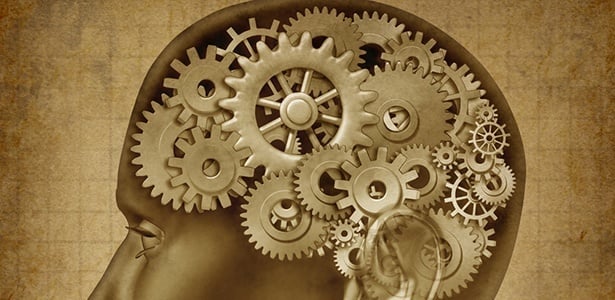Problem Gambling is Cognitive Distortion, says Study
Posted on: May 2, 2015, 11:17h.
Last updated on: May 1, 2015, 05:15h.

Problem gamblers “see” patterns where there is merely randomness, according to a new study.
The research, conducted by the University of Konstanz in Germany and Clarkson University in New York, found that those with pathological gambling disorders were more prone to cognitive distortions.
The findings add weight to the growing argument that such disorders are nature not nurture.
The research involved a sample group of 161 individuals, of which 91 were regular casino gamblers and 70 were control subjects.
Some 28.6 percent of the gambling group were found to be pathological gamblers, compared to just 2.9 percent among the control group.
Participants were asked to bet on one of two slot machines, one of which had a 67 percent chance of winning over time, and the other a 33 percent chance.
The odds were not revealed to participants, but, according to researchers, the correct strategy should have been easy to glean with experience and observation. Except, to the problem gamblers, they were not.
Probability Matching
Results showed that those with gambling problems were more prone to “probability matching” than non-gamblers.
This is a faulty decision-making process, broadly akin to the “gambler’s fallacy,” ie, the idea that because the ball in a roulette wheel has fallen on red eight times, it’s now “due” to fall on black.
While most of us are guilty of using probability matching occasionally, the study suggests that problem gamblers are almost twice more likely to do so than the general population.
“Our results suggest that gamblers are more willing to bet impulsively on perceived illusory patterns,” stated co-lead author Wolfang Gaissmaier. “They are overly prone to accept random series of events as, in fact, non-random, and non-random enough to be worth betting on.”
Poor Cognitive Reflection
Gamblers also fared poorly on cognitive reflections tasks, in which they were asked to answer a series of questions designed to measure impulsivity.
One such question was: a bat and a ball cost $1.10. The bat costs $1.00 more than the ball. How much does the ball cost? The correct answer, 5c, requires more thought than the initial instinct to go for the commonly answered, but incorrect, 10c.
Much recent research agrees that the root of gambling addiction lies in cognitive disorders.
In 2008, for example, a study that compared the gambling habits of 1,354 twins concluded that twins who had a lifetime of gambling issues also had elevated levels of cognitive difficulties compared to their non-gambling siblings.
Meanwhile, a study last year by the University of Iowa found that people are genetically disposed to problem gambling and that close relatives of pathological gamblers are eight times more likely to develop the condition than the general populace.
Related News Articles
Dan Bilzerian Pays Fine But Avoids Jail Time After Nevada Explosion
Kentucky Wildcats Still Big Favorite Heading Into Sweet Sixteen
Scott Walker Announces Presidential Bid
Donald Trump No-Show Debate Gamble Might Pay Off Ahead of Iowa Caucus
Most Popular
FTC: Casino Resort Fees Must Be Included in Upfront Hotel Rates
Genovese Capo Sentenced for Illegal Gambling on Long Island
NBA Referees Expose Sports Betting Abuse Following Steve Kerr Meltdown
UPDATE: Former Resorts World & MGM Grand Prez Loses Gaming License
Most Commented
-
UPDATE: Whiskey Pete’s Casino Near Las Vegas Closes
— December 20, 2024 — 31 Comments -
Caesars Virginia in Danville Now Accepting Hotel Room Reservations
— November 27, 2024 — 9 Comments -
UPDATE: Former Resorts World & MGM Grand Prez Loses Gaming License
— December 19, 2024 — 8 Comments -
FTC: Casino Resort Fees Must Be Included in Upfront Hotel Rates
— December 17, 2024 — 7 Comments
















No comments yet